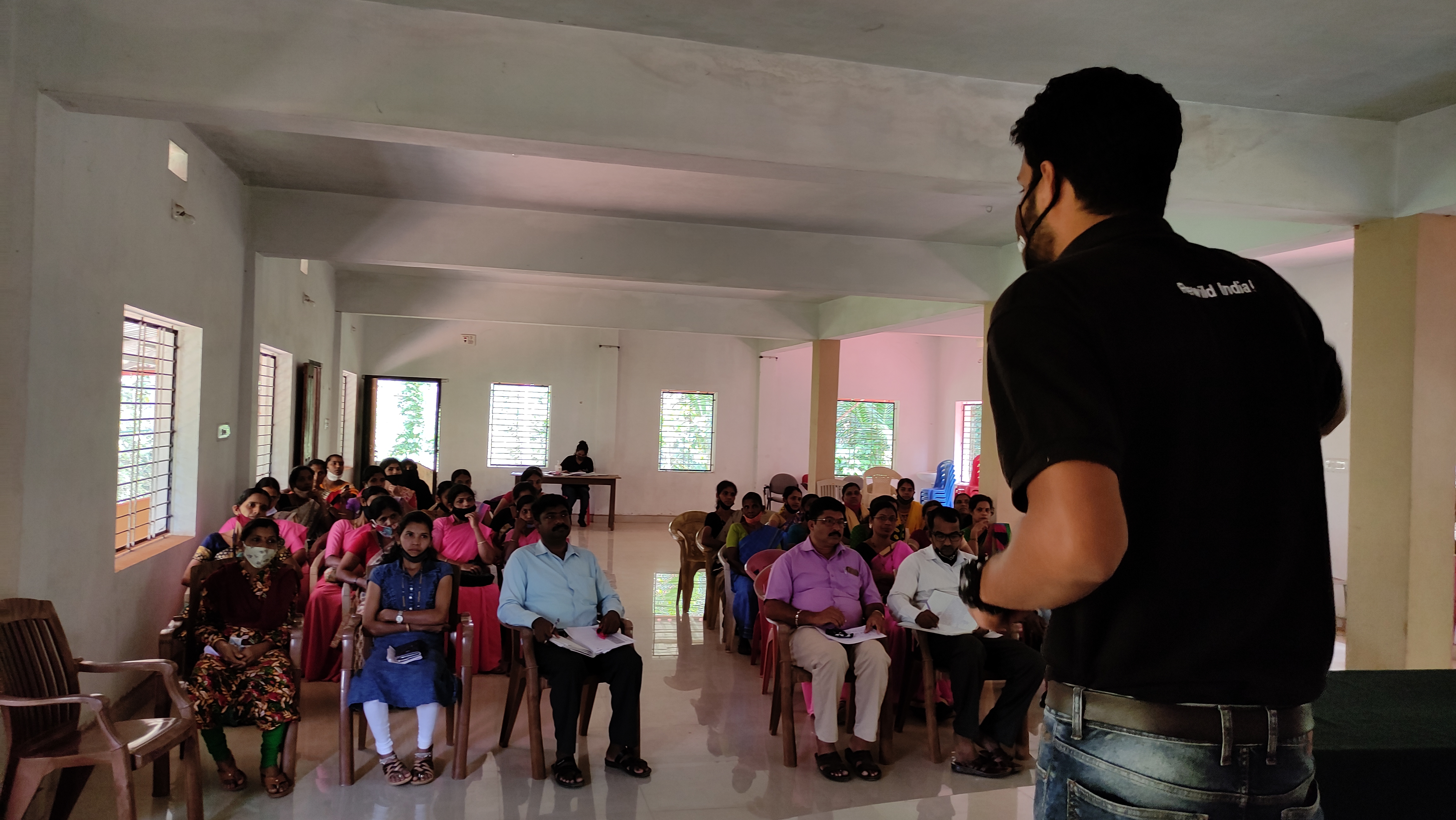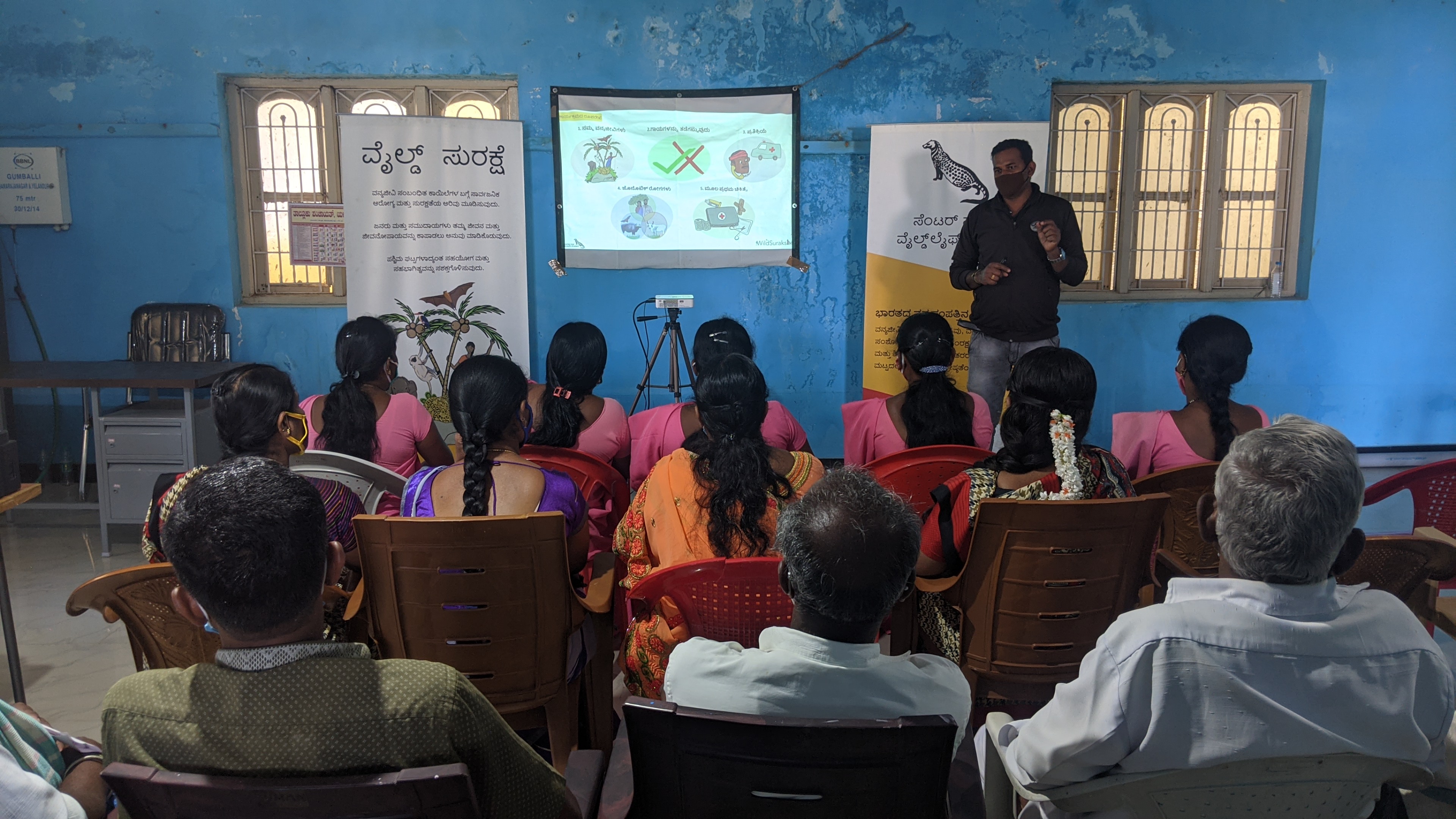


Les ateliers sont organisés dans les villages vulnérables et se concentrent sur la santé et la sécurité publiques par le personnel qualifié de CWS. Les participants sont généralement des familles, des travailleurs de première ligne, des fonctionnaires et des membres d'autres groupes à but non lucratif et d'entraide. Les ateliers sont animés à l'aide d'illustrations, de vidéos et de démonstrations. Chaque atelier comporte cinq sessions. La première session, intitulée "Notre faune", présente aux participants les différentes espèces sauvages présentes dans leur paysage et leur importance. La deuxième session, "Prévenir les blessures dues à la faune", enseigne aux participants comment coexister avec la faune et les choses à faire et à ne pas faire lors de rencontres avec des animaux sauvages. La troisième session, intitulée "Réagir aux rencontres avec la faune sauvage", présente aux participants les étapes à suivre en cas d'incident conflictuel, tel que la perte ou la blessure de bétail. La quatrième session "Maladies zoonotiques" partage des informations importantes sur sept maladies zoonotiques pertinentes - COVID-19, Nipah, typhus des broussailles, maladie de la forêt de Kyasanur, etc. La cinquième et dernière session, intitulée "Premiers secours de base", enseigne aux participants diverses techniques de premiers secours de base par le biais de démonstrations. Après chaque atelier, nous distribuons également des consignes de sécurité et des informations sur les personnes à contacter en cas d'urgence. Pour obtenir un retour d'information et évaluer l'efficacité, nous menons des enquêtes avant et après chaque atelier.
1. Nous veillons à ce que les ateliers soient interactifs, avec des questions, des discussions et des exemples locaux.
2. Nous encourageons la participation de représentants de tous les secteurs concernés (santé/forêt/administration/groupes d'entraide/panchayats, etc.)
3. Nous utilisons des vidéos et des démonstrations pour mieux visualiser les concepts.
4. Lors de la conclusion des ateliers, nous demandons un retour d'information et essayons de l'appliquer dans les ateliers suivants.
5. Nous fournissons des documents contenant des informations résumées.
Après avoir organisé plusieurs ateliers, nous avons appris ce qui suit :
1. la plupart des participants sont très occupés et viennent de loin. Nous nous assurons de connaître les contraintes de temps au début de chaque atelier afin que les participants puissent être présents pendant toute la durée de l'atelier.
2. Les pauses entre les sessions sont importantes pour permettre aux participants de discuter et d'absorber les informations.
3. Nous encourageons les dirigeants locaux à nous aider à identifier les personnes que nous pouvons inviter, ce qui permet de meilleures discussions pendant l'atelier.